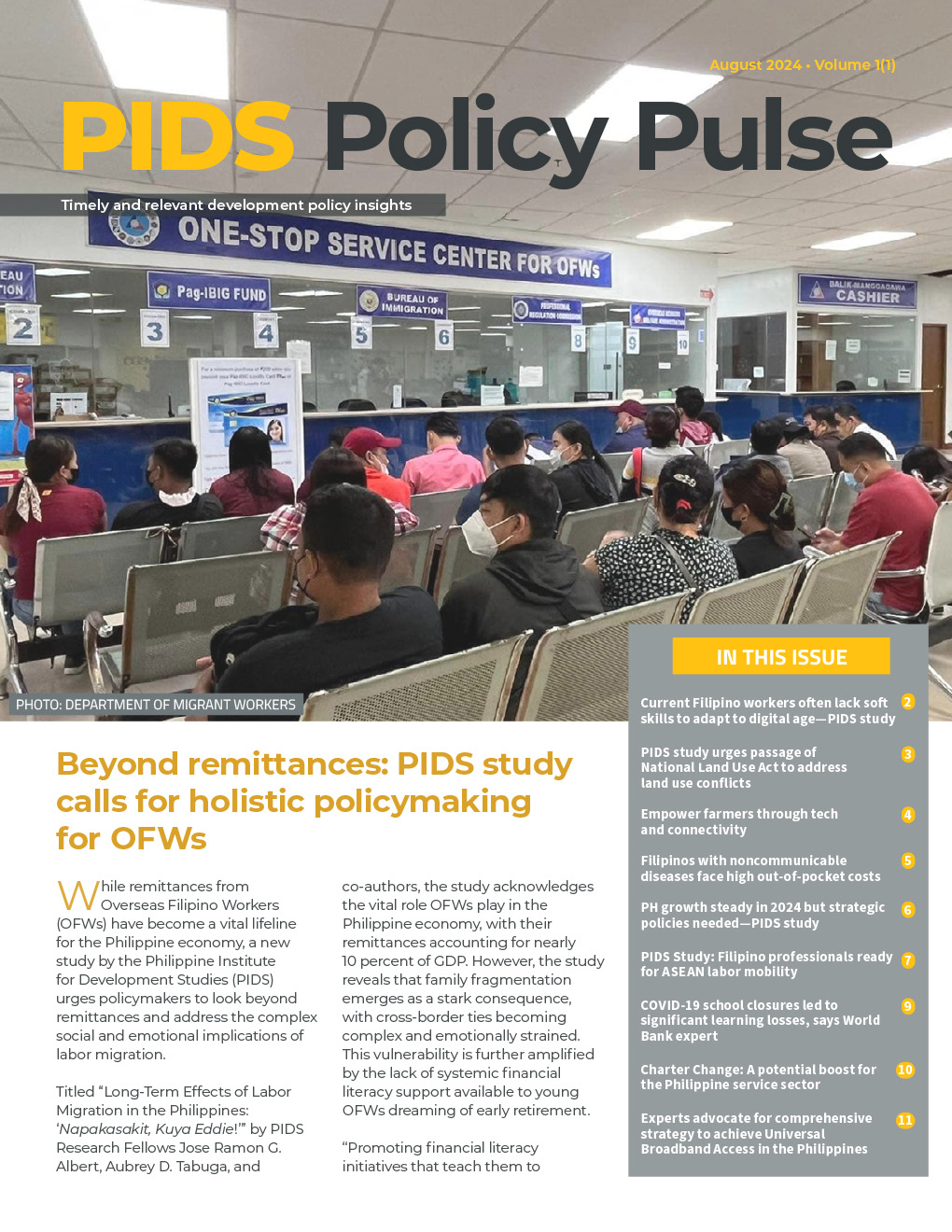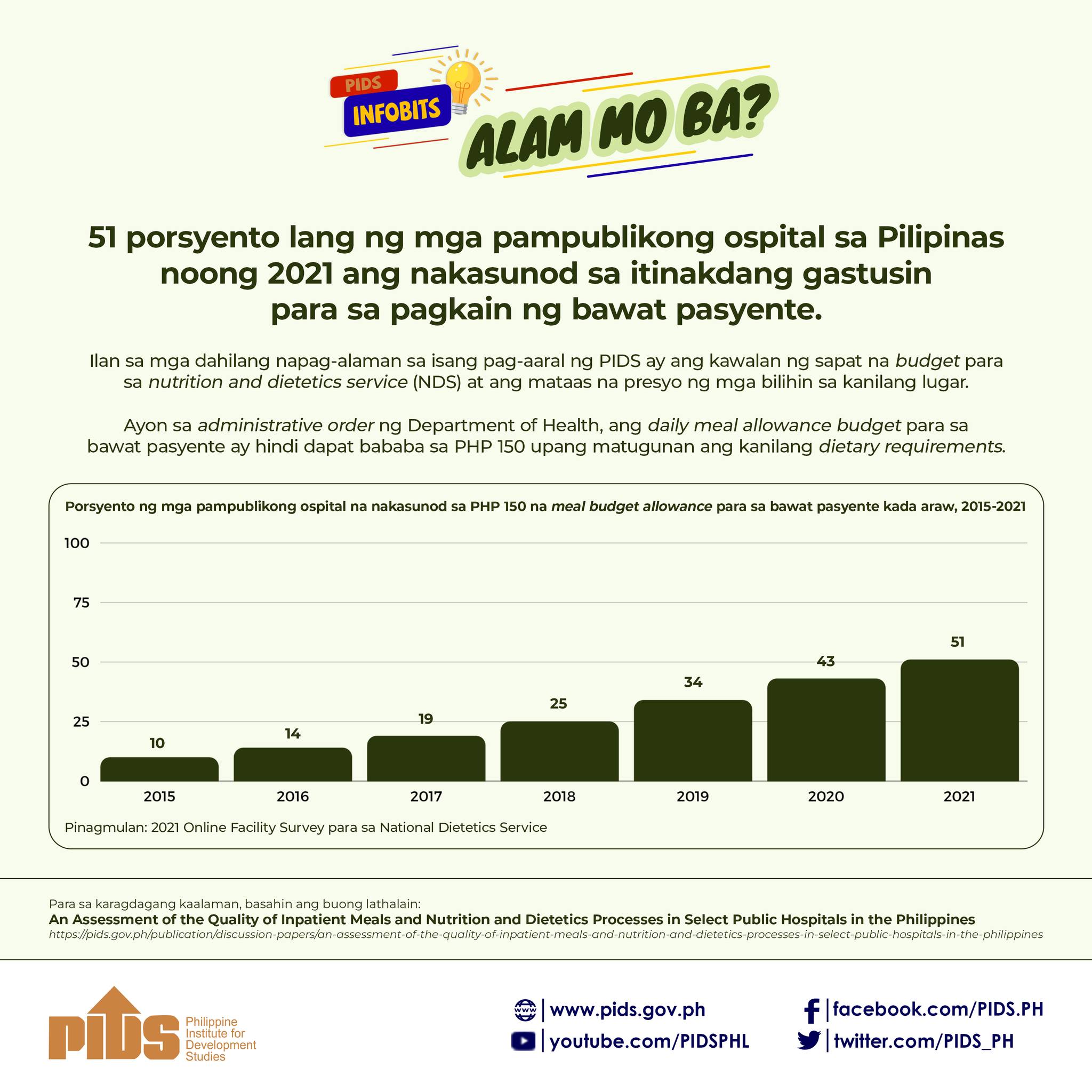A global budget payment (GBP) or an allocated yearly budget for inpatient services for members of the Philippine Health Insurance Corp. (PhilHealth) will be more efficient that the current case-based payment (CBP) scheme, according to the Philippine Institute for Development Studies (PIDS).
In a study commissioned by the PIDS, it was noted that the CBP scheme has drawbacks, as it works as a retrospective payment mechanism where hospitals are reimbursed a given amount after filing a claim for a given case, taking some four to five months.
"As CBP replaced the fee-for-service, it was found out that the amount reimbursed by PhilHealth from the case rates was not sufficient to cover hospital expenses. Majority of the admissions in which patients shoulder the remaining expenses not covered by the CBP scheme goes to balance billing," Hilton Lam, the author of the study, said.
Lam also pointed out that the CBP scheme has high administrative costs of screening cases. It may also decrease the quality of care due to providers avoiding complex cases or not giving the appropriate level of care.
"The PIDS study is therefore recommending for PhilHealth to consider the GBP as an alternative payment mechanism for improving efficiency and decreasing transaction costs," it said in an emailed statement.
"This should be implemented together with an efficient and improved CBP and strict implementation of the no balance billing (NBB)," the PIDS added.
The CBP, implemented by the PhilHealth in 2011,currently covers 23 of the most common conditions and procedures which represent 50 percent of the total claims to PhilHealth.
However, it did not translate into the increase in reimbursement efficiency expected by PhilHealth.
On the other hand, the GBP was formulated in 2012 and covers all PhilHealth members in nonprivate accommodations, but was not implemented due to lack of hospital capacity.
Under the GBP scheme, government hospitals are required to submit applications to be considered under the program. Priority will be given to facilities that meet qualifications–those with at least 90 percent bed capacity dedicated to nonprivate accommodations, centers of quality and referral hospitals.
Hospitals will also be prioritized if they are connected to eClaims facility, and if they are local government unit hospitals implementing province-wide programs.
"Unlike the CBP, BGP would be a prospective payment mechanism in which hospitals would be given funds to cover future claims," PIDS said.
"This prospective mechanism could cut administrative costs and make payment to providers more efficient by giving funds in advance to avoid reimbursement delays," it said.
The study also proposed that PhilHealth give ample time to be able to comply with global budget requirement, given that most hospitals will not be able to meet the qualifications.
"There should be an analysis of the investment needs of hospitals to comply with the global budget requirements," Lam said.
"Based on the assessment of PhilHealth, hospitals cannot comply with the technology with the technology requirements of the GBPP. If PhilHealth still plans to implement GBPP, hospitals should be given adequate preparation time and resources to meet these requirements," he said. –
Inpatient budget better for PhilHealth than case-based payment — PIDS












